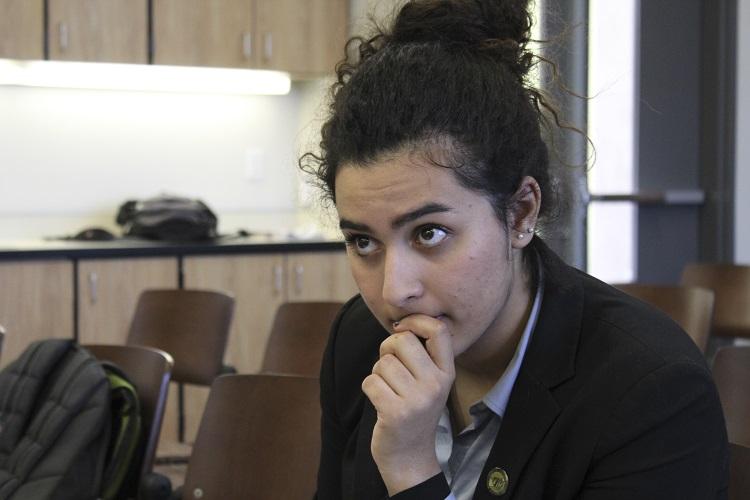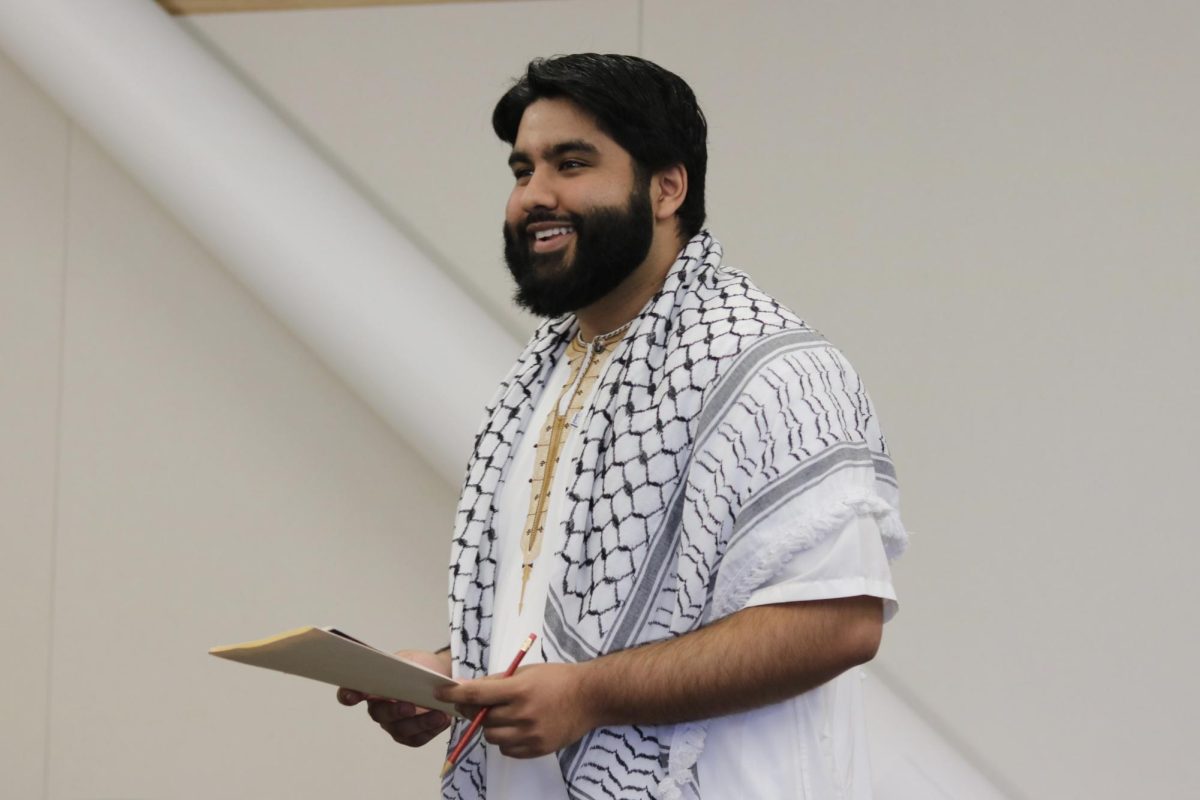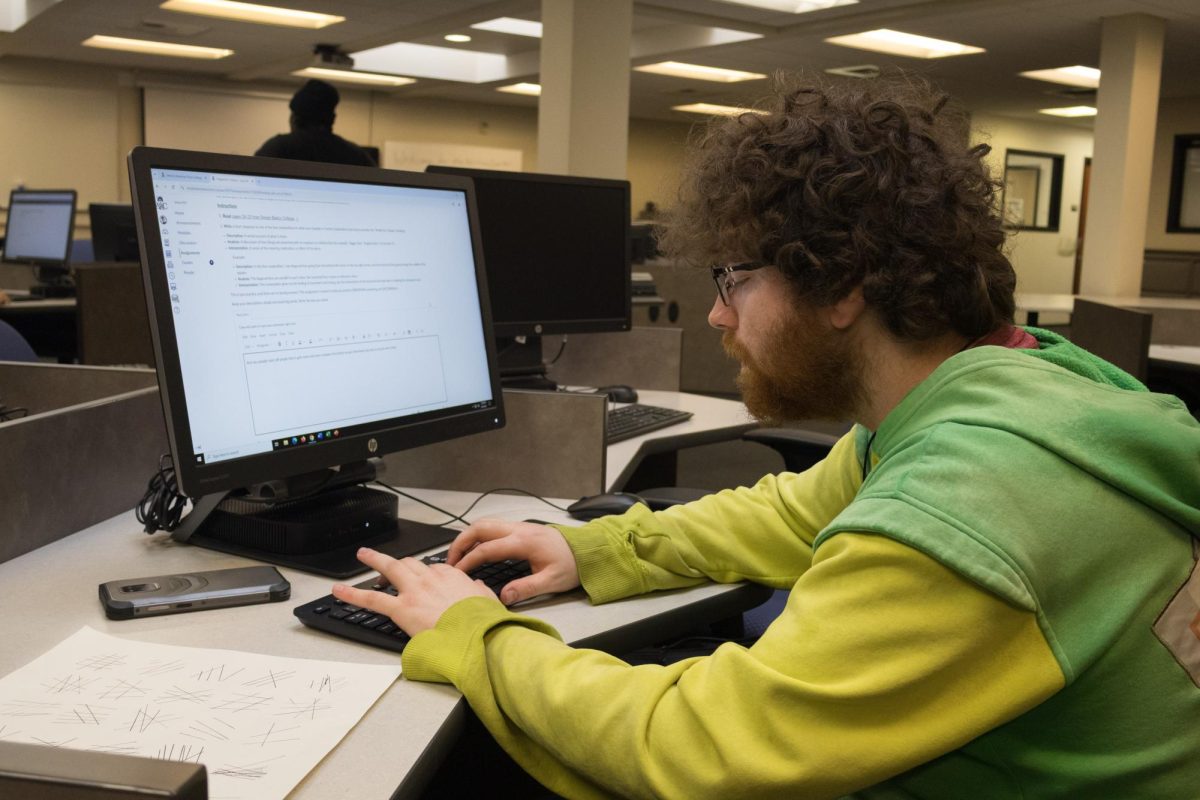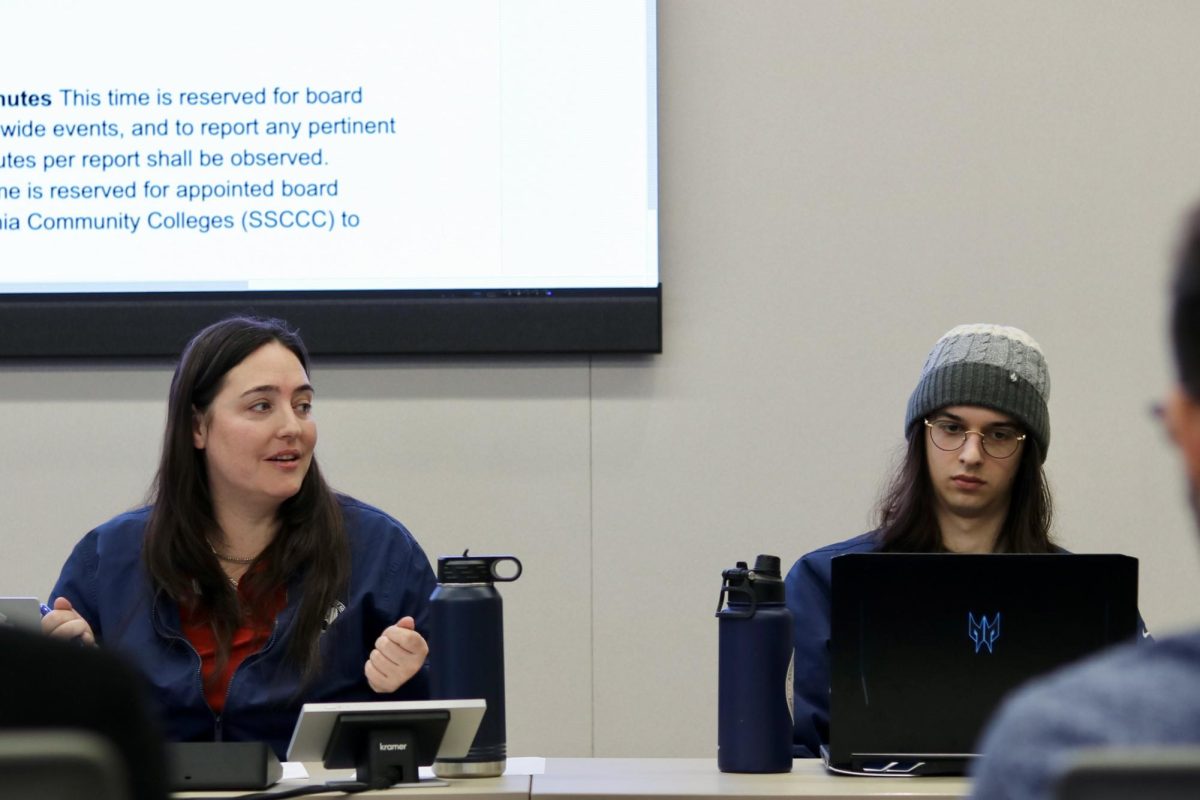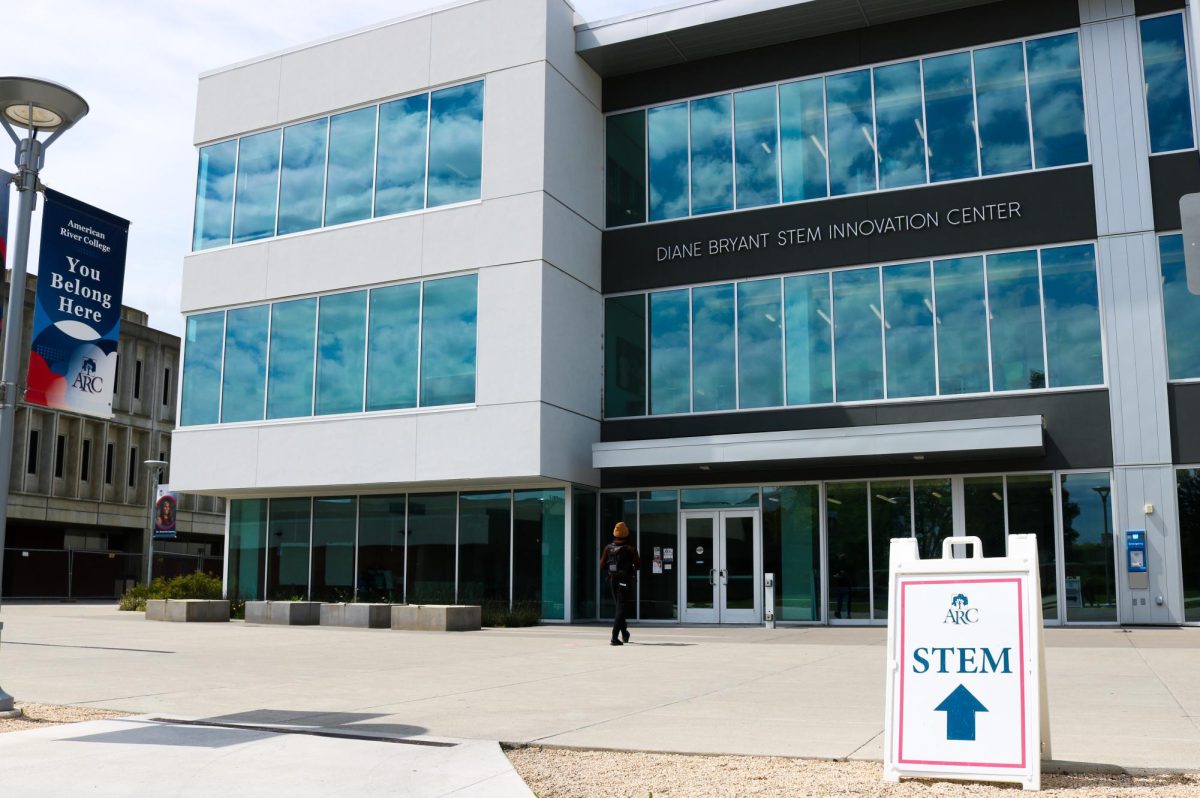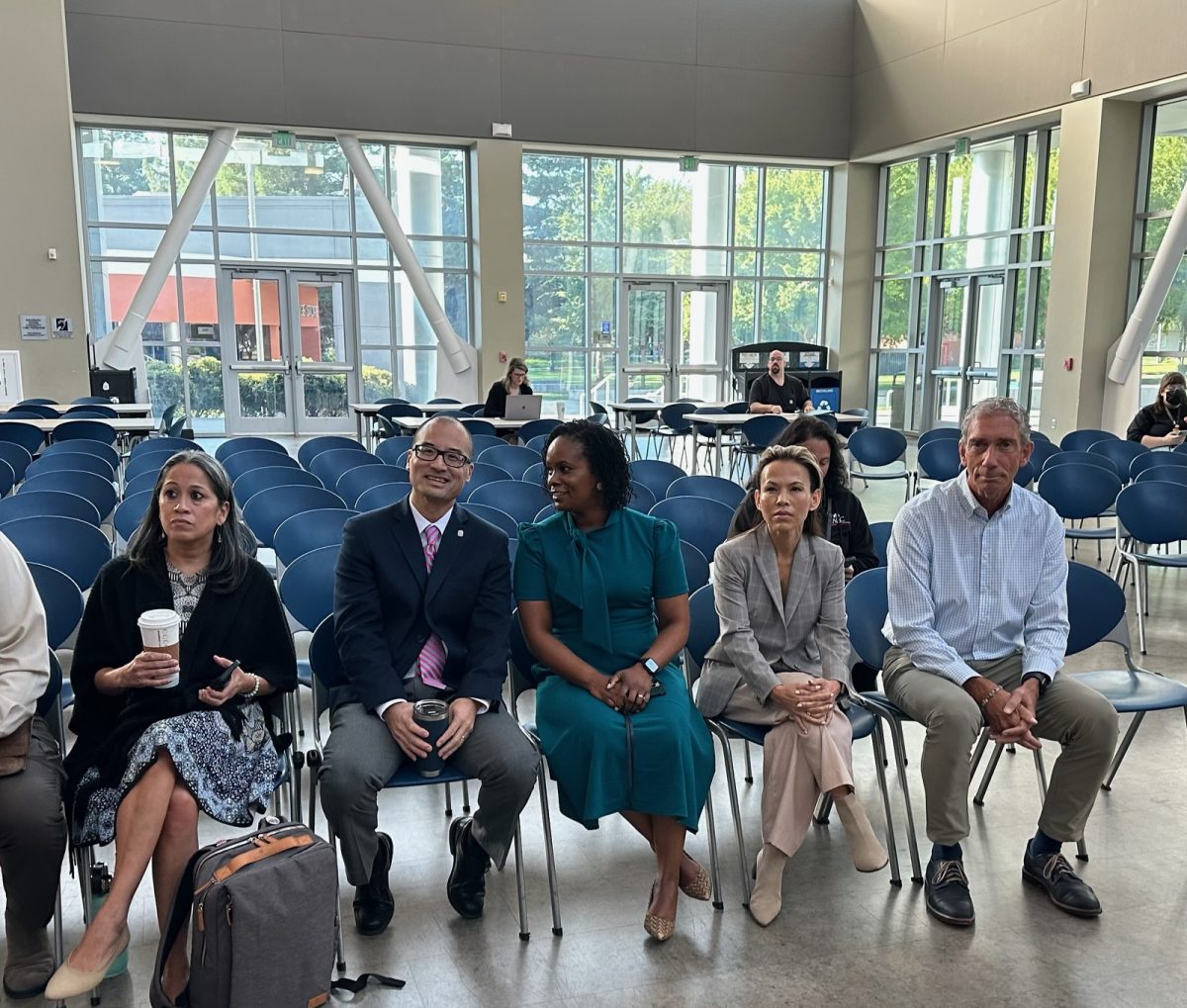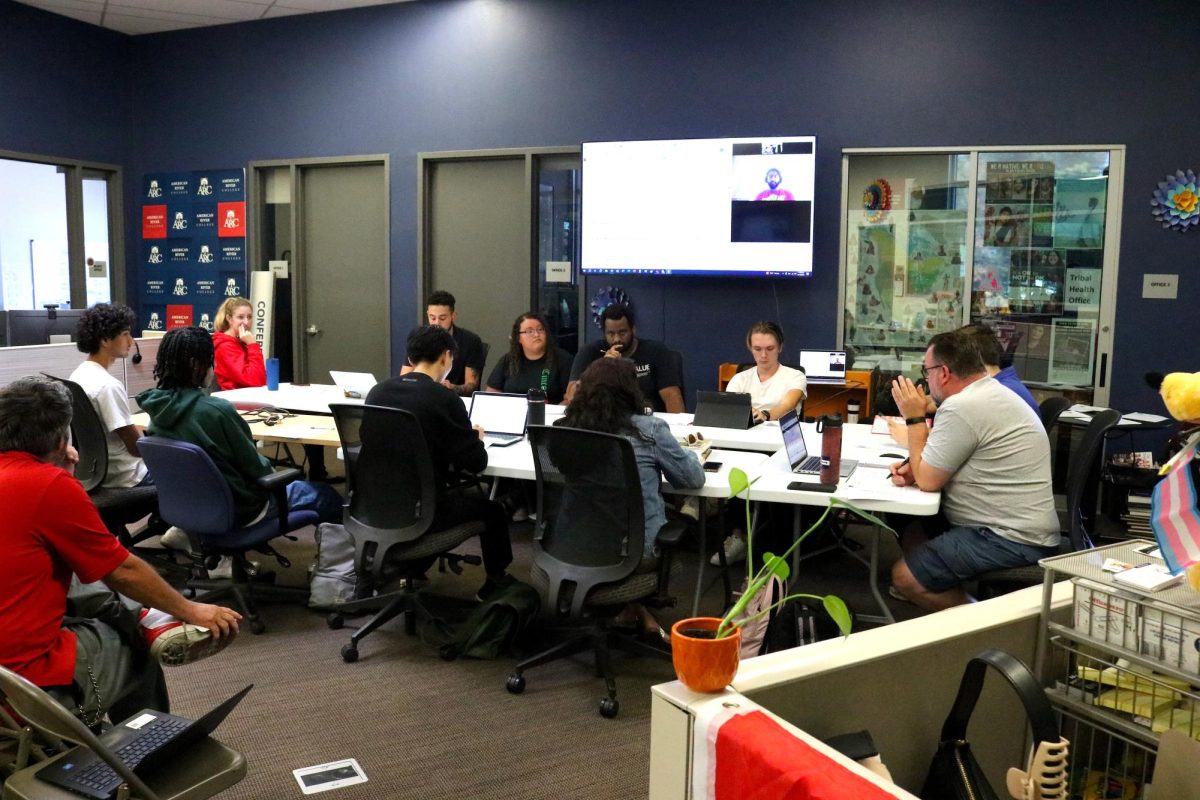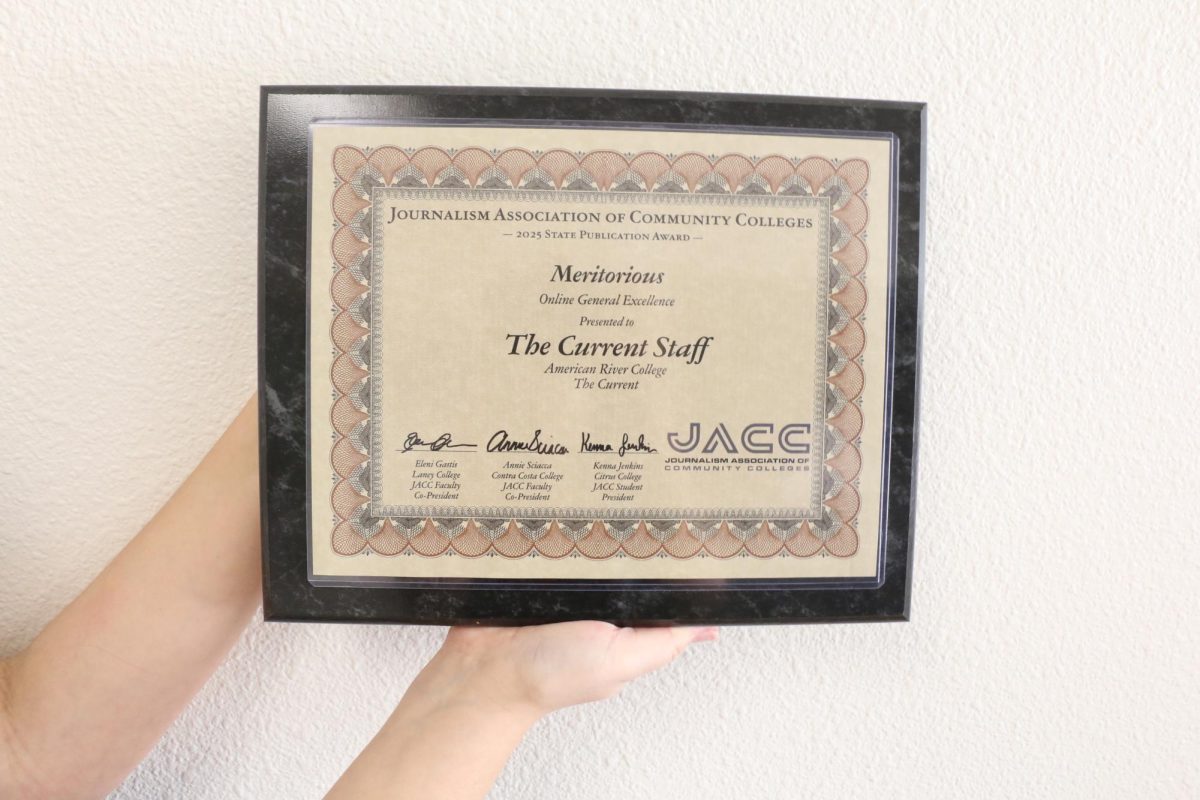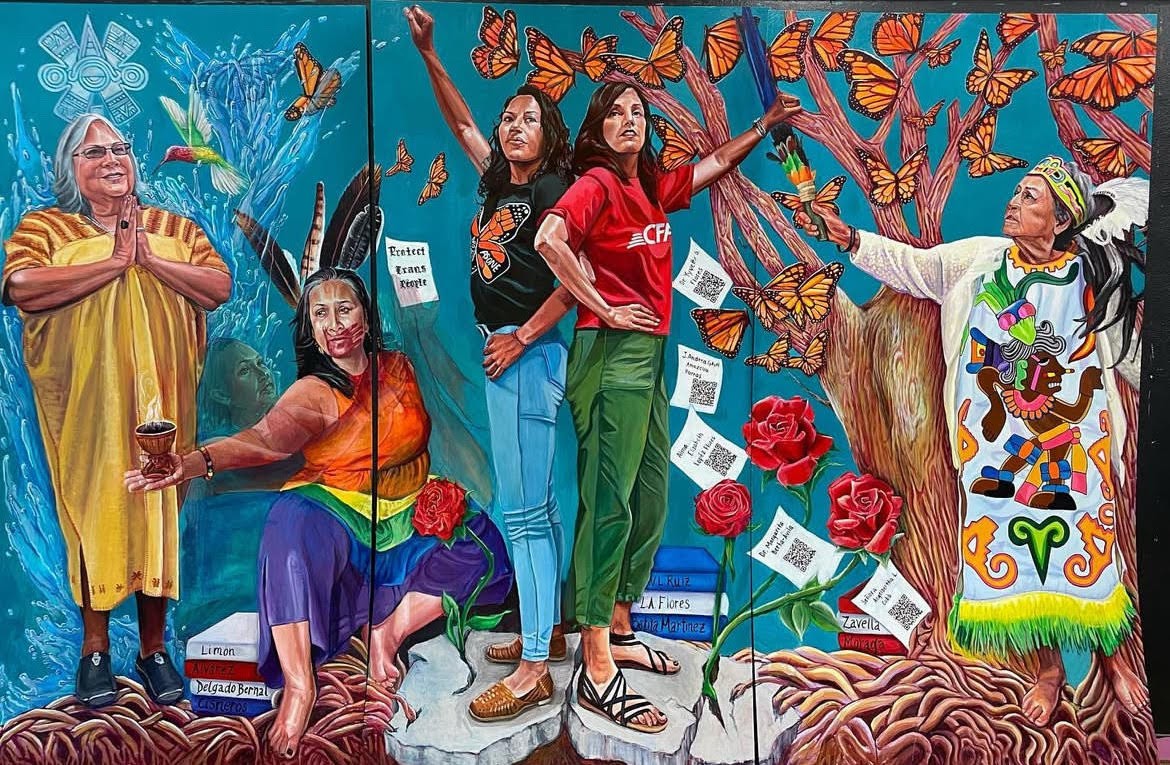Advocacy in April, the event to replace March in March, was presented by Dahlia Salem, president of Student Senate for California Community Colleges (SSCCC), at Thursday’s American River College Student Senate meeting.
March in March was an event organized to support community college student leaders by engaging in legislative visits at the Capitol building, and was made permanent in the fall 2015 SSCCC General Assembly.
Salem and Chris Recouvreur, chair of region two of SSCCC, were at the day’s meeting also to address the report that found a lack of transparency against the SSCCC, which did not get addressed due to lack of time.
With the nearly 80 page report in front of each member, it was unclear to some why Salem and Recouvreur were there.
“I would really like to know why both of you are here,” Sen. James Cortright said. “Neither of you have made it very clear, and we are sitting here with this massive, stack of papers, that is clearly the reason that you both are here.”
Salem said her primary reason for coming was to present the Advocacy in April event but would address any other concerns the board had.
CAEB President Justin Nicholson dedicated much of his time to March and March and wanted explanation for its cancellation.
“I know that March in March was cancelled, for whatever reason,” Nicholson said. “But the information in this packet, makes me feel like March in March wasn’t cancelled, it was killed.”
“As the person who lead the charge for ARC to go to March in March I was completely, blindsided,” Nicholson said. “It seems intentional to me.”
Salem explained to Nicholson the SSCCC’s reasons for changing the event.
“They felt there wasn’t a purpose for it anymore,” Salem said. “The March in March, when it was most effective were during the budget cuts of 2008, ‘09.”
Salem said that the Chancellor’s office and the Board of Governors are doing their job and that the problem is that the districts have complete autonomy as to how this money is being spent.
“That’s the change we need to attack, to actually make change happen,” Salem said.
“Thousands of students marching saying ‘No cuts, no fees’…that was a force,” Salem said. “But right now… the state is giving us money. So when state legislature see us marching … that could have tremendous effect on they way they redo the budget next year.”
Recouvreur gave his explanation and feelings on Advocacy in April to the board after other agenda items were addressed. Although he said it was a chance to educate the next generation of student officers, he did not agree with the way it was abandoned.
“I know it leaves a bad taste in your mouth,” Recouvreur said. “You wanted steak but they have ribs, well I like ribs too.”
“When we look at the facebook chats in that report, it does leave a bad taste,” Recouvreur said. “Because they’re talking about having a carbon copy of this event (Advocacy in April) instead of March in March and that’s what happened.”
Recouvreur said that the problem is that when the SSCCC made March in March permanent, it should have followed through, and that the reason for its lack of success last year was due to poor planning.
After ARC’s Student Senate dedicated much of its time to March in March, there is question as to why they should participate in Advocacy in April and how many students could even attend with such short notice.
Members of the ARC Student Senate are still deciding if they will participate in Advocacy in April.
Advocacy in April is to take place on April 21 on the front lawn of the Capitol building and will consist of three major parts.
The first will be Advocacy training sessions, consisting of a general session where student leaders are informed of the bills that are being advocated for.
One of the bills being advocated for is AB 1721, which increases Cal Grants and financial aid, according to Salem.
The next part will be the rally, based on the topic of “Our State, Our Aid,” and highly focused on the financial aid issues that students currently face, which will feature key speakers yet to be announced and an open mic session.
According to Salem, a report came out that found it is more expensive to be a community college student than it is to be a CSU or UC student. This report will be discussed at the rally.
The last part will be legislative visits, which will allow student leaders to meet with the state legislature and advocate for higher education.
Because of the capacity of the lawn, there is only enough space for 250 attendees.


